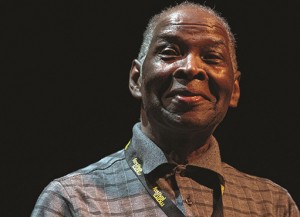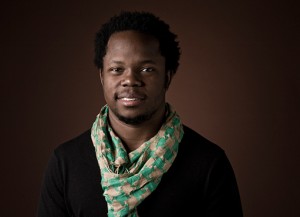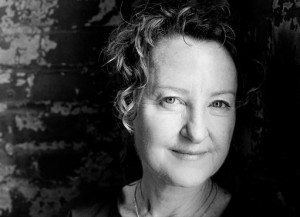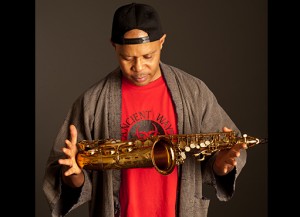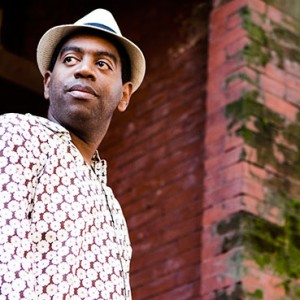Six musicians identified with jazz have been named 2015 Doris Duke Performing Artists receiving $275,000 each, 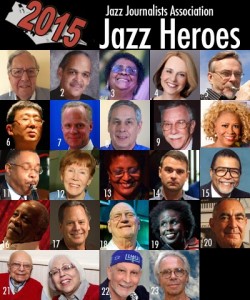 and 24 “Jazz Heroes” have been certified by the Jazz Journalists Association after nominations from local jazz communities across the U.S. Are comparisons between these two very different lists of honorees instructive?
and 24 “Jazz Heroes” have been certified by the Jazz Journalists Association after nominations from local jazz communities across the U.S. Are comparisons between these two very different lists of honorees instructive?
The Doris Duke Performing Artists are AACM co-founder-composer-pianist Muhal Richard Abrams, trumpeter-composer Ambrose Akinmusire, innovative big band composer-arranger Darcy James Argue, alto saxophonist-composer-bandleader-MBASE founder Steve Coleman, Afro-Cuban alto saxophonist Ysovany Terry and Okkyung Lee, an improvising cellist noted for her works with noise and a “body of work demonstrating irreverence for genre boundaries and a penchant for collaboration.”
The Jazz Heroes are a diverse lot: Music educators, philanthropists, producer-presenters, communicators, musicians who put something extra into audience engagement, a poet and a dentist to treats jazz musicians at greatly reduced fees. They receive no cash award, but are celebrated by their friends and neighbors at public festivities and with official proclamations throughout Jazz Appreciation Month running up to International Jazz Day — what the JJA calls JazzApril. The Heroes are listed below, with numbers corresponding to their thumbnails in the photo collage.
Just to be clear: I’m president of the Jazz Journalists Association — which received funding from the Doris Duke Charitable Foundation via the Mid Atlantic Arts Foundation in 2013 for our eyeJAZZ jazz-news video initiative. And I know that there is enormous difference in intent as to what the JJA and DDCF are trying to accomplish. Our organization is interested in encouraging grassroots jazz activists to use media to spread buzz about the music. DDCF is dedicated to providing “deepened investments in the artists’ personal and professional development and future work.”
Certainly that must be a worthy endeavor. Foundation and institutional patronage of the arts in the U.S. is a highly contentious issue and the history of it has not favored jazz. Ornette Coleman’s 1967 Guggenheim fellowship is usually cited as the first such prestigious and generous honor for jazz composition, and the National Endowment for the Arts started its Jazz Initiative acknowledging Jazz Masters as well as funding jazz projects with grants in 1982. Today, the MacArthur Foundation, the Herb Alpert Foundation, US Artists and DDCF bestow funds of varying degrees of largess upon jazz people and other music creators (also practitioners of other disciplines) through processes of private nomination and panelists’ selection.
The funding can have profound affect — I just attended DDCF Performing Artist Myra Melford’s week-long residency at The Stone, at which my presence and more importantly that of her collaborators, as well as film and audio recording and public relations services were made possible by the grants she has received. Myra’s 12 sets of performances by 10 different ensembles over six days were abundant with beautiful music. She received coverage in the New York Times, Wall Street Journal, TimeOutNewYork, The New Yorker and the LA Times, and generated interest from other venues in having her perform for them. DDCF’s investment paid off in significantly raising her profile and we hope in the near future exposing her enriching music to larger, more widespread audiences. This is all a good thing.
But I am remain naggingly troubled by the idea of artists such support in this way. Grants like these seem to elevate an elite class with certified status. On the one hand, it’s great
that people doing exemplary if not necessarily commercial work are recognized and rewarded. On the other hand, these grant programs select one talent suitable to receive up to, say $275,000 (new DDPAs Abrams, Akinmusire and Steve Coleman already received Doris Duke Impact Awards, but those $80,000 grants are deducted from their DDPA funding), when $275k might also, for instance, be split among 11 artists who’d receive a still generous $25k each.
Does the idea of rounding up of a coterie of even the greatest artists for financial support while overall funding for the arts in the U.S., whether from commercial entities, public or private ones remains so indeterminate bother anyone else? What do you think, you who are supportive in so many ways of jazz and new arts — you who are just as likely as anyone else to be qualified to be a Jazz Hero?
- Ann Arbor MI: Don Chisholm
- Baltimore: Charles Funn
- (SF)Bay Area: Avotcja JiltonilroÂ
- Bloomington IN: Monika HerzigÂ
- Boston: Mark Sumner HarveyÂ
- Chicago: Tatsu Aoki
- Madison: Howard Landsman
- Memphis: David C. Bradford, Sr
- Memphis: Jack N. Schaffer
- New Brunswick NJ: Virginia DeBerry
- New Orleans: Dr. Michael White
- NY Capital Region: Lee ShawÂ
- New York City: Kim A. Clarke
- Philadelphia: Mark ChristmanÂ
- Pittsburgh: Dr. Nelson Harrison
- Portland OR: Mel BrownÂ
- Santa Cruz CA: Tim JacksonÂ
- Seattle: Mack WaldronÂ
- South Florida: Nicole YarlingÂ
- St. Louis: Don WolffÂ
- Tallahassee FL: Carole & Stan Fiore
- Washington D.C.: Charles FishmanÂ
- Woodstock NY, Dr. Bruce Jay Milner
Subscribe by Email |
Subscribe by RSS |
Follow on Twitter
[contextly_auto_sidebar id=”gyvKe7LlKshcgggaKSh6LWkh4kDFzflM”]

